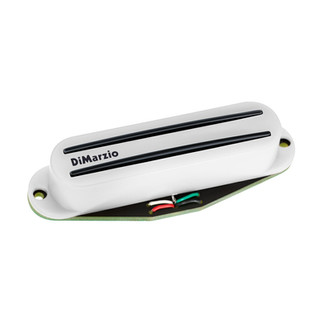Upgrading pickups
- Gaskell Guitars Australia

- Oct 20, 2016
- 3 min read
Updated: Jun 8, 2025
Although pickups are a major contributor to the final sound of any electric guitar or bass they are not the be-all-and-end-all of how a guitar sounds. The quality and combination of tonewoods are senior factors. A guitar made out of a poor sounding tone wood will always sound poor even with expensive pickups. If you are considering pickup upgrades you need to consider what you are upgrading. You should be well-informed so you achieve the ideals you envisioned for your instrument. Hopefully this information will be of some help.
There are three main categories of pickups:
VINTAGE OUTPUT. Generally speaking these are pickups that are made to sound like the guitars of the 1950's and 1960's. They have a lower output than other types of pickups and because of this are suited for a cleaner, sound typical of the era. They are sometimes described as having a clean, "jingle-jangle" sound. Some brands that are particularly famous for their vintage sounding guitars are Rickenbacker and Mosrite. Most aftermarket pickup brands offer a decent range of vintage pickups.
MEDIUM OUTPUT. You could say these are the "next ones up" from vintage pickups but this in not entirely true. Medium output pickups remain clear and defined at clean settings but will overdrive well as well. They are suited for most styles of Country, Blues, Pop and Rock and other guitar-driven music as they are equally capable of clean and dirty sounds. Pickups of this kind are often chosen for players who play 1970's and 1980's era music but can be used for any era including Jazz music. It would not be wrong to say that medium output pickups are for "general use." The majority of aftermarket pickup brands focus on medium output pickups.
HIGH OUTPUT. These pickups are purposefully made for heavy music. They do not clean up well. The benefit of high output pickups is that you do not need to have a high gain setting on your amp to get a dirty sound. These are suited for Punk, Hard Rock and Metal music. The high compression caused by these pickups easily creates a thick, "wall of sound" when strumming. Many more harmonics and overtones jump out at high volumes and this is capitalized on by lead players who use the phenomena for speed soloing and tricks like pinch harmonics. High output pickups are not suitable for Jazz, Pop, or any music which favours a clean guitar sound. Most aftermarket pickup brands have a smaller selection of high output pickups due to their limited application.
Choices
There are hundreds of different pickups anyone can use in their guitar. Keeping it simple will get you closer to making decisions about what pickups you want to use if you don't already have a favourite or two. The worst case scenario is that the pickup you choose ends up sounding disappointing to your ears upon completion of the build. But you would not have known unless you tried. Pickups can be easily swapped. If something didn't sound like what you expected, try something else! Sound and tone is always a subjective thing. What someone else likes or favours may or may not also please you too.
Brands
The most popular high quality pickup brands today are Seymour Duncan, EMG and DiMarzio.
I really like Tonerider pickups, from the UK. One thing I like about Tonerider is that they consciously make pickups that are configured for left hand guitars. They also sound awesome and can be almost half the price of the "Big Three." We are talking about a guitar pickup that is made in the UK, not China!
Gibson and Fender make great original pickups, and a lot of customers who order Custom left hand guitars builds of Gibson-esque or Fender-ish design sometimes like to have the Gibson or Fender originals for their builds.
Some boutique brands that are worth looking into include Bartolini, Lindy Fralin, Lollar, and others. This is by no means a complete list!
Do not be falsely put off by the Chinese or Korean brands either. Wilkinson, originally from the UK, Artec and Mings from China, are excellent sounding lower costing pickups. It all depends on how much you want to spend.
Feel free to contact us directly about upgrading the pickups of your guitar.
















Comments